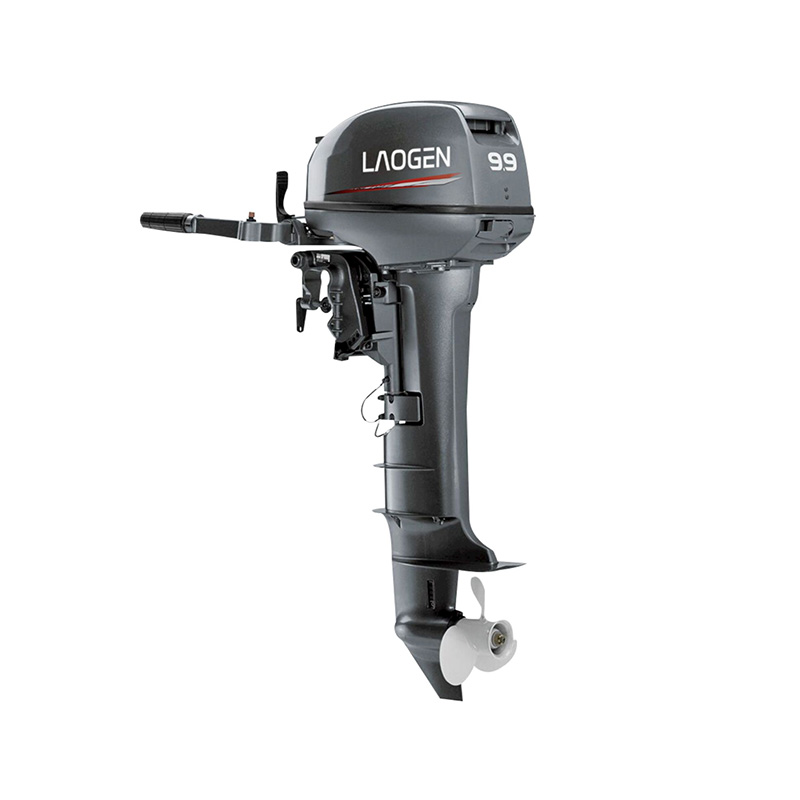How Does The Fuel Efficiency Of A 40 Hp 2 Stroke Outboard Compare To Similar Horsepower 4 Stroke Outboard Engines?
Custom Sale Wholesale 40 Hp 2 Stroke Outboard Manufacturing
In the realm of marine propulsion systems, the debate surrounding fuel efficiency often pits the venerable 40 hp 2 stroke outboard against its counterpart, the 4 stroke engine of similar horsepower. Both have their loyal proponents, but determining which is more fuel-efficient requires a closer examination.
The 40 hp 2 stroke outboard, a stalwart of boating for decades, boasts a simplicity of design and construction. Its power-to-weight ratio makes it a favored choice for smaller watercraft, such as fishing boats and recreational dinghies. However, its reputation for being less fuel-efficient than 4 stroke engines has been a point of contention.
A key factor in understanding the fuel efficiency of the 40 hp 2 stroke outboard lies in its combustion process. Unlike the 4 stroke engine, which completes a cycle of intake, compression, power, and exhaust in four strokes of the piston, the 2 stroke engine accomplishes the same in just two strokes. This inherent design difference affects the fuel consumption.
Traditionally, 2 stroke engines have been perceived as less fuel-efficient due to their reliance on a premixed fuel-oil mixture and the potential for unburned fuel to escape through the exhaust. However, advancements in technology have led to significant improvements in recent years.
Modern 40 hp 2 stroke outboard engines now feature enhancements such as direct fuel injection and electronic fuel management systems, which optimize fuel delivery and combustion efficiency. These advancements have narrowed the gap in fuel efficiency between 2 stroke and 4 stroke engines.
Comparatively, 4 stroke engines offer a more controlled combustion process, with separate intake and exhaust strokes reducing the likelihood of fuel wastage. 4 stroke engines typically run quieter and produce fewer emissions, appealing to environmentally-conscious boaters.
In practical terms, the fuel efficiency of a 40 hp 2 stroke outboard engine versus a similar 4 stroke counterpart can vary depending on several factors. Boat weight, hull design, propeller choice, and operating conditions all play a role in fuel consumption.
For boaters looking for great fuel efficiency, careful consideration of these factors is critical. While 4-stroke engines may have a fuel economy advantage under certain conditions, the simplicity, power-to-weight ratio, and technological advancements of the 40-horsepower 2-stroke outboard engine continue to make it a competitive choice.
While the fuel efficiency debate between 40 hp 2 stroke outboard and 4 stroke engines persists, it's clear that both have their merits. With ongoing technological innovations, the performance gap between the two continues to narrow, offering boaters a diverse range of options to suit their specific needs and preferences. Whether it's the classic simplicity of the 2 stroke or the refined efficiency of the 4 stroke, the choice ultimately rests with the individual boater and their priorities on the water.
As advancements in technology continue to refine both 2 stroke and 4 stroke engines, the distinction in fuel efficiency becomes increasingly nuanced. While 4 stroke engines may excel in certain conditions, the 40 hp 2 stroke outboard maintains its appeal for its simplicity, power-to-weight ratio, and recent technological enhancements. Boaters must weigh factors such as boat type, usage patterns, and personal preferences when deciding which engine type best suits their needs. The choice between a 40 hp 2 stroke outboard and a similar 4 stroke engine hinges on a careful consideration of these factors and an understanding of the trade-offs involved in fuel efficiency, performance, and overall boating experience.


 English
English русский
русский











